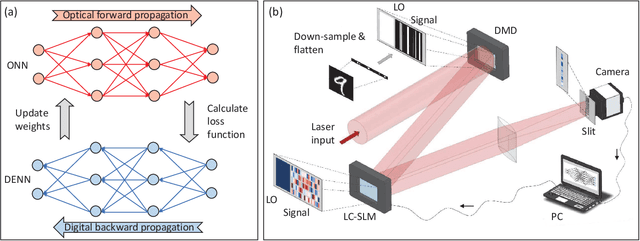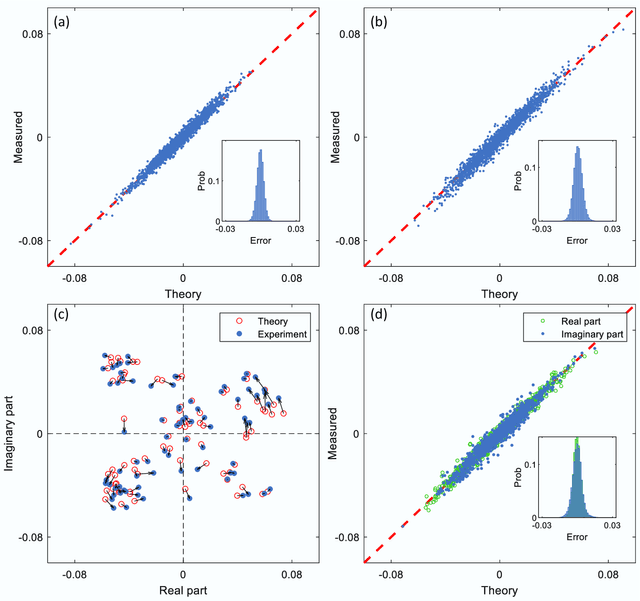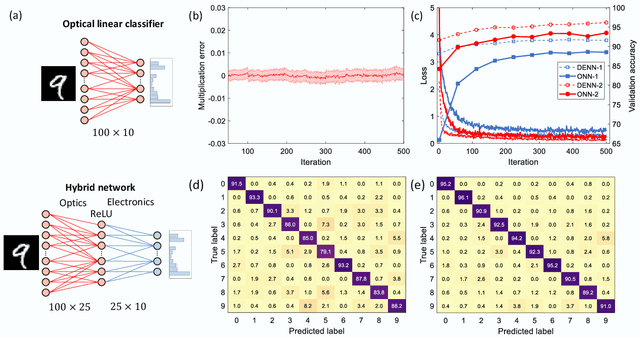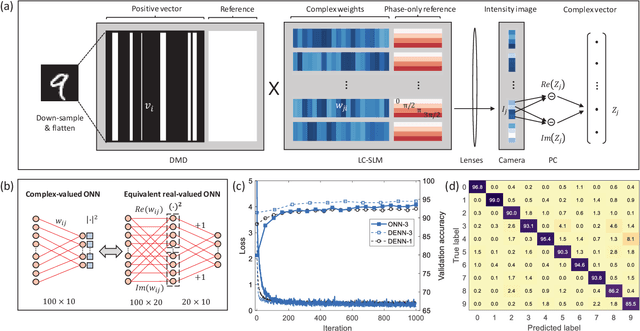James Spall
Training neural networks with end-to-end optical backpropagation
Aug 09, 2023



Abstract:Optics is an exciting route for the next generation of computing hardware for machine learning, promising several orders of magnitude enhancement in both computational speed and energy efficiency. However, to reach the full capacity of an optical neural network it is necessary that the computing not only for the inference, but also for the training be implemented optically. The primary algorithm for training a neural network is backpropagation, in which the calculation is performed in the order opposite to the information flow for inference. While straightforward in a digital computer, optical implementation of backpropagation has so far remained elusive, particularly because of the conflicting requirements for the optical element that implements the nonlinear activation function. In this work, we address this challenge for the first time with a surprisingly simple and generic scheme. Saturable absorbers are employed for the role of the activation units, and the required properties are achieved through a pump-probe process, in which the forward propagating signal acts as the pump and backward as the probe. Our approach is adaptable to various analog platforms, materials, and network structures, and it demonstrates the possibility of constructing neural networks entirely reliant on analog optical processes for both training and inference tasks.
Hybrid training of optical neural networks
Mar 20, 2022



Abstract:Optical neural networks are emerging as a promising type of machine learning hardware capable of energy-efficient, parallel computation. Today's optical neural networks are mainly developed to perform optical inference after in silico training on digital simulators. However, various physical imperfections that cannot be accurately modelled may lead to the notorious reality gap between the digital simulator and the physical system. To address this challenge, we demonstrate hybrid training of optical neural networks where the weight matrix is trained with neuron activation functions computed optically via forward propagation through the network. We examine the efficacy of hybrid training with three different networks: an optical linear classifier, a hybrid opto-electronic network, and a complex-valued optical network. We perform a comparative study to in silico training, and our results show that hybrid training is robust against different kinds of static noise. Our platform-agnostic hybrid training scheme can be applied to a wide variety of optical neural networks, and this work paves the way towards advanced all-optical training in machine intelligence.
 Add to Chrome
Add to Chrome Add to Firefox
Add to Firefox Add to Edge
Add to Edge